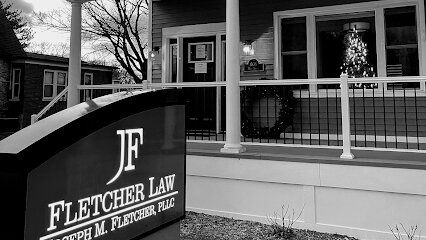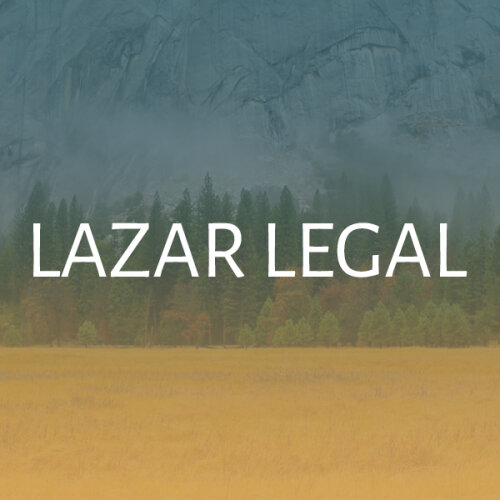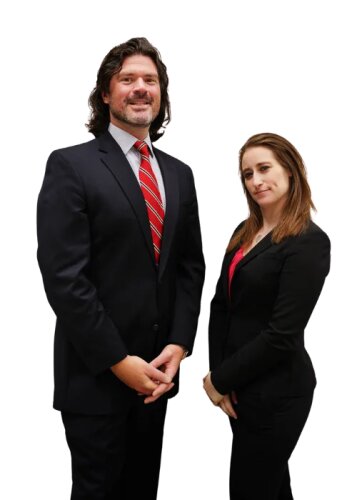Best Ethics and Professional Responsibility Lawyers in New York
Share your needs with us, get contacted by law firms.
Free. Takes 2 min.
Or refine your search by selecting a city:
List of the best lawyers in New York, United States
About Ethics and Professional Responsibility Law in New York, United States
Ethics and Professional Responsibility law in New York governs the conduct of professionals, especially lawyers, to ensure that they act with integrity, honesty, and fairness in their practices. These laws and rules create standards for attorneys and other professionals regarding their duties to clients, courts, and the public. In the legal field, the New York Rules of Professional Conduct set the ethical framework that attorneys must follow when representing clients, handling confidential information, managing conflicts of interest, and interacting with the justice system. Ethical breaches can result in disciplinary action, including censure, suspension, or disbarment for attorneys.
Why You May Need a Lawyer
There are several situations where consulting a lawyer experienced in ethics and professional responsibility is essential. You may require legal guidance if you are:
- An attorney facing a grievance, disciplinary proceeding, or an investigation by the New York Attorney Grievance Committee.
- A client who believes your attorney has behaved unethically or mishandled your case.
- A legal professional encountering potential conflicts of interest, confidentiality issues, or questions about proper client representation.
- Any professional accused of unethical conduct or professional misconduct in their field.
- An employer or organization needing guidance on compliance with local ethical standards and rules.
Engaging a knowledgeable lawyer ensures that you understand your rights, obligations, and potential consequences of your actions or the actions of others.
Local Laws Overview
In New York, the primary body of rules governing lawyers is the New York Rules of Professional Conduct. These rules address a wide range of issues, including:
- Duties of confidentiality and attorney-client privilege
- Handling conflicts of interest
- Prohibition of frivolous lawsuits and abuse of legal process
- Advertising, solicitation, and fees
- Proper management of client funds and trust accounts
- Duty to report misconduct by other lawyers
- Competence, diligence, and communication with clients
- Responsibilities when withdrawing from representation
The New York State Unified Court System oversees the registration and discipline of attorneys. Complaints against lawyers are reviewed by local Attorney Grievance Committees, and investigations can result in hearings and sanctions. Different types of professionals, such as doctors or accountants, are subject to ethics rules established by their own professional regulatory bodies, often overseen by the New York State Education Department or specialized licensing boards.
Frequently Asked Questions
What are the most common ethical violations for attorneys in New York?
Common violations include mishandling of client funds, conflicts of interest, lack of communication with clients, failing to maintain confidentiality, and neglecting client matters.
How can I file a complaint against an attorney in New York?
You can submit a written complaint to the appropriate Attorney Grievance Committee in the area where the attorney practices. The committee will review the complaint and determine if an investigation is warranted.
What happens if an attorney is found to have violated ethics rules?
Sanctions can range from private reprimands to public censure, suspension, or even permanent disbarment, depending on the severity of the misconduct.
Are lawyers in New York required to report unethical conduct by other lawyers?
Yes. Under the New York Rules of Professional Conduct, lawyers must report knowledge of another lawyer’s serious ethical violations to the proper authorities.
Can a client sue an attorney for ethical violations?
Yes. A client may have grounds for a civil lawsuit, such as legal malpractice or breach of fiduciary duty, if damages resulted from the attorney’s unethical conduct.
Are the ethics rules the same for all professionals in New York?
No. Different professions have their own codes of ethics and state regulatory bodies, though many principles like honesty and confidentiality are similar across fields.
What is attorney-client privilege in New York?
Attorney-client privilege protects most communications between a lawyer and their client from disclosure, subject to certain exceptions such as intent to commit a crime.
How do I know if my attorney has a conflict of interest?
A conflict of interest exists when an attorney’s representation of your interests is impaired by other obligations or relationships. Lawyers must disclose and usually must obtain your informed consent before proceeding.
What should I do if I suspect my attorney is not acting ethically?
You should speak with your attorney about your concerns and, if unresolved, consider consulting another lawyer or filing a complaint with the local Attorney Grievance Committee.
What resources are available to attorneys for ethical guidance in New York?
Attorneys can seek informal ethics opinions from the New York State Bar Association Committee on Professional Ethics or contact the New York City Bar Association’s Ethics Hotline for confidential advice.
Additional Resources
Individuals seeking more information or assistance on ethics and professional responsibility issues in New York may find these resources helpful:
- New York State Unified Court System - Attorney Matters
- New York State Bar Association - Committee on Professional Ethics
- New York Attorney Grievance Committees
- New York City Bar Association - Ethics Hotline
- New York State Education Department - Professional Discipline
- American Bar Association - Center for Professional Responsibility
Next Steps
If you believe you need legal guidance related to ethics and professional responsibility in New York, consider the following steps:
- Gather all relevant documents and information related to your concern.
- Reach out to a lawyer who specializes in professional responsibility or legal ethics to discuss your situation confidentially.
- If you are a professional, consider obtaining a formal or informal ethics opinion before taking any action that could have ethical implications.
- For urgent concerns, such as an impending disciplinary action or legal deadline, act quickly and seek immediate legal counsel.
- Contact local attorney referral services or bar associations if you need help finding qualified legal representation.
Taking prompt and informed action can help protect your rights, your reputation, and your professional standing. Consulting with a legal professional is the best way to ensure your concerns are addressed appropriately under New York law.
Lawzana helps you find the best lawyers and law firms in New York through a curated and pre-screened list of qualified legal professionals. Our platform offers rankings and detailed profiles of attorneys and law firms, allowing you to compare based on practice areas, including Ethics and Professional Responsibility, experience, and client feedback.
Each profile includes a description of the firm's areas of practice, client reviews, team members and partners, year of establishment, spoken languages, office locations, contact information, social media presence, and any published articles or resources. Most firms on our platform speak English and are experienced in both local and international legal matters.
Get a quote from top-rated law firms in New York, United States — quickly, securely, and without unnecessary hassle.
Disclaimer:
The information provided on this page is for general informational purposes only and does not constitute legal advice. While we strive to ensure the accuracy and relevance of the content, legal information may change over time, and interpretations of the law can vary. You should always consult with a qualified legal professional for advice specific to your situation.
We disclaim all liability for actions taken or not taken based on the content of this page. If you believe any information is incorrect or outdated, please contact us, and we will review and update it where appropriate.
Browse ethics and professional responsibility law firms by city in New York
Refine your search by selecting a city.
















